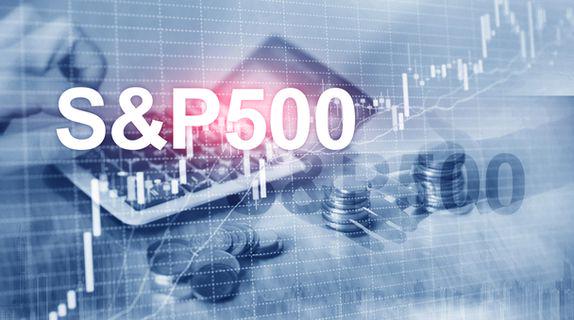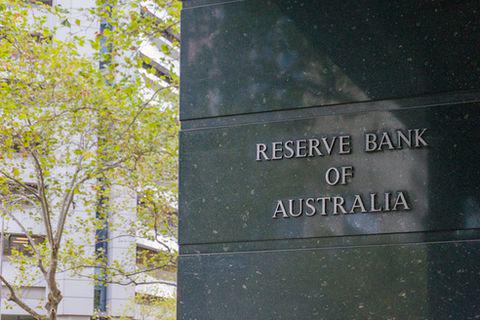
The S&P 500 had a good week due to the impressive start of Q1 earnings and favorable inflation data. In March, the consumer price index rose 5%, lower than the previous month's 6%, and met economists' expectations.

Don’t waste your time – keep track of how NFP affects the US dollar!
Data Collection Notice
We maintain a record of your data to run this website. By clicking the button, you agree to our Privacy Policy.

Beginner Forex Book
Your ultimate guide through the world of trading.
Check Your Inbox!
In our email, you will find the Forex 101 book. Just tap the button to get it!
Risk warning: ᏟᖴᎠs are complex instruments and come with a high risk of losing money rapidly due to leverage.
68.53% of retail investor accounts lose money when trading ᏟᖴᎠs with this provider.
You should consider whether you understand how ᏟᖴᎠs work and whether you can afford to take the high risk of losing your money.
Information is not investment advice
2021 was a year of surprises for the stock market, especially in the US. It went against all expectations. Everyone was waiting for the stocks to drop, only to see them make record historical highs over and over, and vice versa.
It won't be much different in 2022. So now let's see what will affect stock movements next year
The markets understood the lesson of higher prices from first sight during 2021. As a result, companies have chosen to pass the higher costs (transportation, materials, labor, and wages) to eager consumers who want to spend what they saved during the pandemic year 2020. As a result, companies earned high profits during 2021, thanks to high inflation.
But the higher prices of goods and services to consumers, the lower the demand, resulting in weaker companies profits. When this happens, the stock markets won't be happy.
If inflationary pressures persist or increase in the first half of 2022, things could become problematic. Stocks are a good hedge against inflation up to a certain degree if it rises between 3% to 5%. However, if price growth continues above 4%, this would undermine profits and hurt stocks.
Also, hotter inflation will push central banks to tighten monetary policy and raise interest rates, thus draining liquidity and withdrawing it from the markets. Federal Reserve Chairman Jerome Powell has already stated that they may raise rates three times during 2022.
However, JPMorgan expects the S&P 500 to jump above 5,000 in the first half of 2022, representing a potential 6% rise from current levels.
Beijing has taken extreme measures to curb the profits of Chinese tech giants and educational companies this year and imposed restrictions on lending to real estate developers to reduce its dependence on the sector.
Offshore Chinese stocks in Hong Kong are among the worst performers in the world in 2021. The MSCI China index is near its lowest level against global stocks since 2006.
Many of the factors that crushed Chinese financial markets will continue with us in 2022. Investors are still afraid of the Communist Party's unexpected policies, with expectations of continued crackdowns on the tech sector, after Beijing asked Didi Global to delist from the New York Stock Exchange in the United States.
In addition, the ongoing trade war, the growing division between Beijing and Washington, and the mutual banning of Chinese and American technology companies by both sides. Finally, let's not forget the Chinese real estate and housing sector crisis.
These obstacles will affect corporate profits and hurt the US and Chinese stocks hard, especially in the tech sector.
Pandemic developments have been the main driver of the market for nearly two years, causing the markets to crash in 2020, then launch a historic rally on the back of vaccination campaigns that allowed economies to reopen in 2021.
With the discovery of the Delta and Omicron variants, the markets witnessed chaotic volatility in global stock indices.
Most analysts expect the virus to become a side effect in the coming year as markets and people adjust to living with it.
The year 2022 is full of events that we might call "black swan events," sudden events with unexpected impact on the markets as they are hard to predict.
Among these events: the US midterm elections, the French presidential election, the tensions in Taiwan, the crushing crisis in the Turkish economy after the historic fall of the lira, and the persistence of supply chain bottlenecks.
Global warming and the transition to clean energy are other things that traders may need to consider. In addition, high carbon prices and environmental taxes on companies that produce harmful emissions will increase production costs for industries, which may negatively affect the profits of some companies and stocks.
Finally, do not forget that high valuations of stocks create fragile markets, easily affected by the slightest events. This is what we witness in the stock markets. The value of some shares has become exaggerated and does not reflect their fair value. It's like forming a new bubble, which may explode because of the reasons mentioned above. So, what will happen if more than one reason comes together? Or will the stocks continue to go against the trend?

The S&P 500 had a good week due to the impressive start of Q1 earnings and favorable inflation data. In March, the consumer price index rose 5%, lower than the previous month's 6%, and met economists' expectations.

FAANG stocks started recovering. Which ones are the best according to fundamental analysis?

The previous year 2022, was undoubtedly tumultuous for the stock markets, with several stocks plummeting across multiple industries. Analysts have blamed the hard times on inflation, hawkish federal reserve policies, an impending global recession, and the ongoing crisis in Ukraine. This year, however, we're beginning to see some recovery in the stock markets. This article will find a few stocks worth buying this year.

eurusd-is-falling-what-to-expect-from-the-future-price-movement

Greetings, fellow forex traders! Exciting news for those with an eye on the Australian market - the upcoming interest rate decision could be good news for Aussies looking to refinance or take out new loans. The Mortgage and Finance Association Australia CEO, Anja Pannek, has...

Hold onto your hats, folks! The Japanese yen took a nosedive after the Bank of Japan (BOJ) left its ultra-loose policy settings unchanged, including its closely watched yield curve control (YCC) policy. But wait, there's more! The BOJ also removed its forward guidance, which had previously pledged to keep interest rates at current or lower levels. So, what's the scoop? Market expectations had been subdued going into the meeting, but some were still hoping for tweaks to the forward guidance to prepare for an eventual exit from the bank's massive stimulus
Your request is accepted.
We will call you at the time interval that you chose
Next callback request for this phone number will be available in 00:30:00
If you have an urgent issue please contact us via
Live chat
Internal error. Please try again later